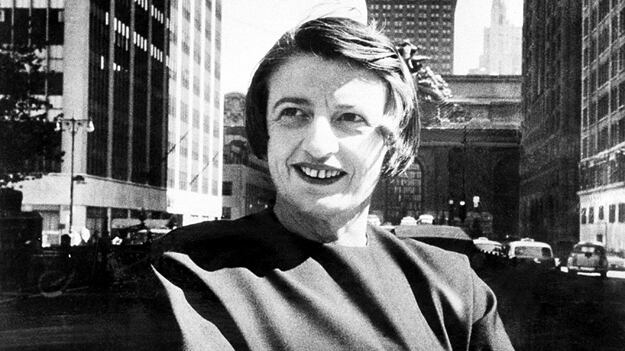
Brian Bolduc pushes back agains the left-wing trope that GOP budget author Paul Ryan is a devotee of Ayn Rand:
Finally, Ryan’s critics make a huge leap in logic. It’s almost as stark as the one that equates selflessness with an eagerness to spend other people’s money. Just because he agrees with Rand on economics doesn’t mean he agrees with her on theology. Rand herself may have considered these two issues inextricable, but Ryan and her millions of other readers aren’t obligated to do so. You’re allowed a little more interpretive freedom when reading a mass-market novel like Atlas Shrugged than a party platform like The Communist Manifesto.
I'm not sure how helpful Bolduc is really being here, because in the process of trying to show that Ryan is not a Rand devotee, he lets it slip that Ryan still lets Rand's economic thinking influence his world view:
It’s worth noting that Milwaukee Journal-Sentinel writer Craig Gilbert, who reported Ryan’s remarks, didn’t attribute the same significance to this line that Ryan’s critics did. Rather, he used it as evidence for a broader point: that Ryan had “a world view shaped by such icons of individualism and free enterprise as Ayn Rand, Milton Friedman, and Friedrich Hayek.”
In various interviews, Ryan has identified other intellectual influences, such as his old economics professor Richard Hart, Wall Street Journal editorial-page editor Robert Bartley, and Austrian economist Friedrich Hayek. In other words, Ryan believes in free-market economics (no surprise there), and he finds all these thinkers’ defenses of capitalism compelling. What’s the big deal?
My problem with this defense is that Rand was not an economist, but a fiction writer, a fact that is often lost on her admirers. Atlas Shrugged and The Fountainhead are inspiring to some, but the idea that the economics which those stories portray has any resemblance to reality is ludicrous. Howard Roark's career as an architect in The Fountainhead in written entirely in service to the story's narrative arc and the business tycoons in Atlas Shrugged don't behave like actual businessmen. To put it another way, Hayek and Friedman had to justify their free market positions with math and facts, unlike Rand who used just tautological assertions about what is "rational".
I'm having difficulty thinking of other works of fiction that have become cornerstones of other schools of political or social thought (if you can think of some, post them in the comments!) We wouldn't set up a judicial system based on the punishment scheme found in Dante's Inferno, the military doesn't make plan for campaigns based on how Tolkein described going to war in Lord of the Rings, and no NASA engineer would ever actually use a Star Trek blueprint to design a spacecraft.
So when talking about the economics profession and how best to set up free markets, can Rand's peculiar and fictional views about human nature be left out of the canon?






